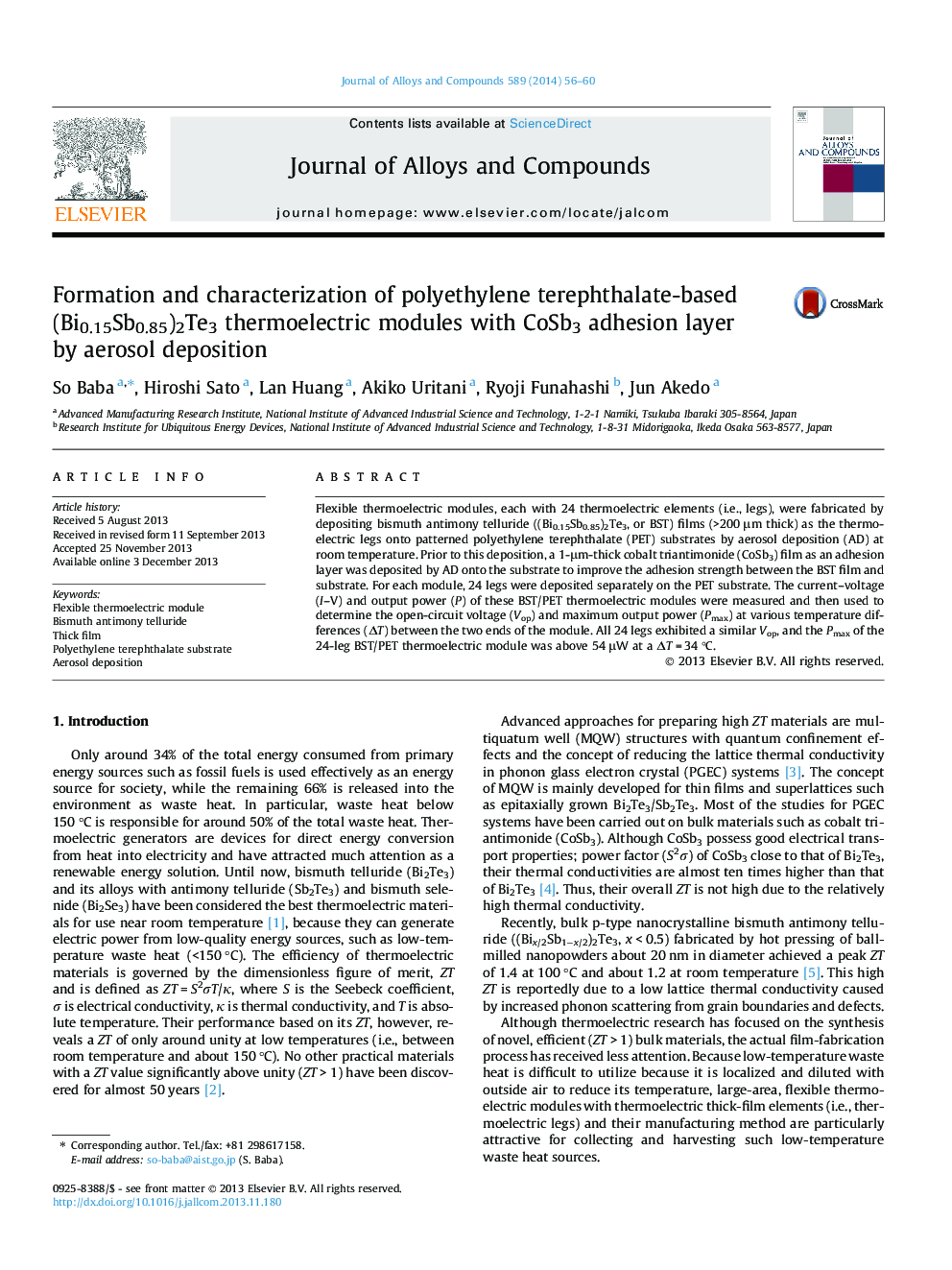| Article ID | Journal | Published Year | Pages | File Type |
|---|---|---|---|---|
| 1612031 | Journal of Alloys and Compounds | 2014 | 5 Pages |
Abstract
Flexible thermoelectric modules, each with 24 thermoelectric elements (i.e., legs), were fabricated by depositing bismuth antimony telluride ((Bi0.15Sb0.85)2Te3, or BST) films (>200 μm thick) as the thermoelectric legs onto patterned polyethylene terephthalate (PET) substrates by aerosol deposition (AD) at room temperature. Prior to this deposition, a 1-μm-thick cobalt triantimonide (CoSb3) film as an adhesion layer was deposited by AD onto the substrate to improve the adhesion strength between the BST film and substrate. For each module, 24 legs were deposited separately on the PET substrate. The current-voltage (I-V) and output power (P) of these BST/PET thermoelectric modules were measured and then used to determine the open-circuit voltage (Vop) and maximum output power (Pmax) at various temperature differences (ÎT) between the two ends of the module. All 24 legs exhibited a similar Vop, and the Pmax of the 24-leg BST/PET thermoelectric module was above 54 μW at a ÎT = 34 °C.
Related Topics
Physical Sciences and Engineering
Materials Science
Metals and Alloys
Authors
So Baba, Hiroshi Sato, Lan Huang, Akiko Uritani, Ryoji Funahashi, Jun Akedo,
